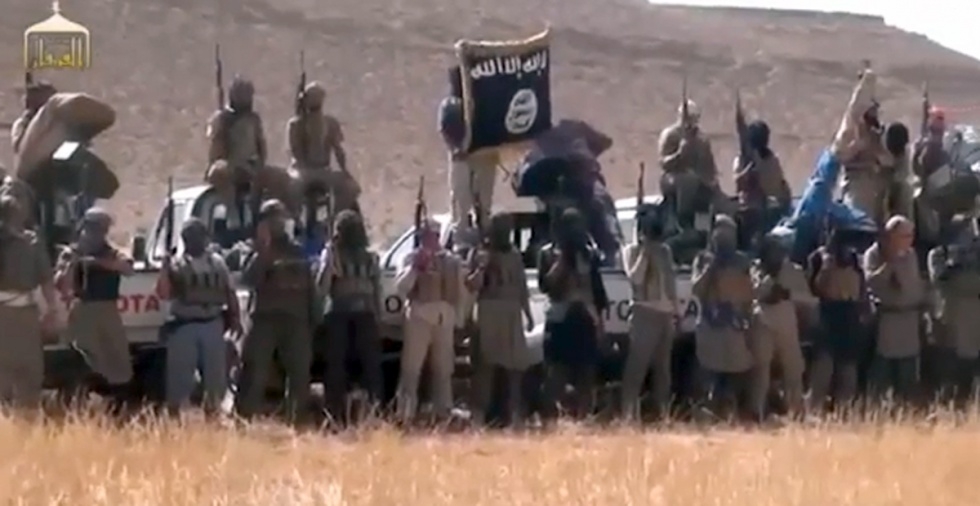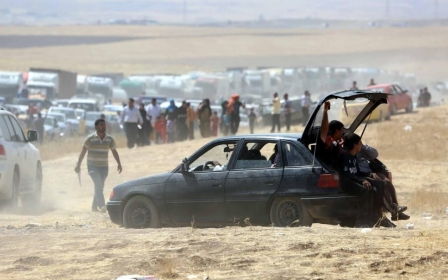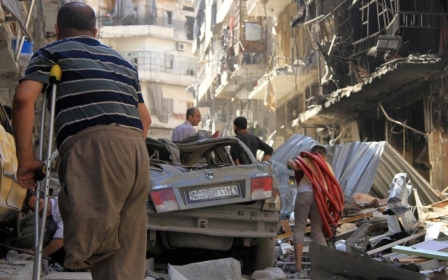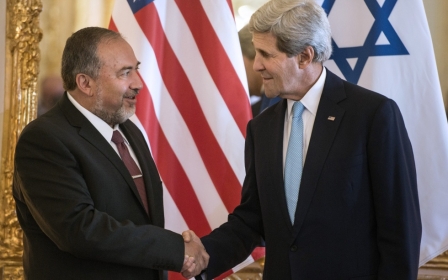ISIL selling oil to Assad, warns French FM

The Islamic State in Iraq and the Levant (ISIL, recently renamed the Islamic State) are selling oil from captured oil fields to the government of Bashar al-Assad in Syria, the French foreign minister said on Monday.
Laurent Fabius told a news conferences in New Delhi that the sales highlighted the “confusing” nature of the conflict in the region.
"We have proofs that when ISIL has taken over oil it has sold oil to the [Bashar al-Assad] regime," he said.
“Officially they are combating each other but in fact they are very often helping each other."
He warned that the situation in Iraq was “very, very, very worrying.”
"Why? Because it is probably the first time that a terrorist group - and a ferocious terrorist group - is in a position, if there is no reaction, to take over the whole country, and a rich country, with enormous consequences for the region and the world," he said.
It has long been established ISIL’s operatives in the North-East of Syria have sold the Assad government oil from the captured oilfields there.
An unnamed Western intelligence source alleged to the Daily Telegraph in January that Assad “is paying al-Nusra to protect oil and gas pipelines under al-Nusra’s control in the north and east of the country, and is also allowing the transport of oil to regime-held areas.”
“We are also now starting to see evidence of oil and gas facilities under ISIS control.”
ISIL are now thought to be the wealthiest militant Islamic organisation on Earth, with the spoils from raids on banks, on civilians, donations from abroad and oil money thought to have left them with over $2 bn.
The Assad government has had strained relations with the government of Iraqi Prime Minister Nuri al-Maliki over the years.
Assad allowed militant Sunni Islamist fighters free passage into Iraq during the conflict following the 2003 US-led invasion and allegations continue to abound that the Syrian President has made a pact with ISIL in order to discredit the “moderate” opposition in the country.
However David Butter, an associate fellow at Chatham House, said that the extent of ISIL’s involvement in oil trading is being exaggerated.
“The more significant interaction between various rebel groups in Syria and the government is natural gas,” he told Middle East Eye.
“And again, it’s pretty small, there’s no-one making a huge amount of money out of this. There’s a bit of money made by various people selling it into Turkey, but I don’t think this is a very big deal.”
Butter said that amount of oil ISIL would have access to in Iraq is minimal, in spite of the seizure of pipelines and small oil fields.
“I don’t think this is a systemic relationship, if anything it’s one or two deals,” he told MEE.
“The theory that the regime has played a part in ISIL’s rise is pretty longstanding and there’s a certain amount of evidence to support it. But being in cahoots in a big way, I don’t think its ever been proven and I don’t see any evidence of it now.”
“This is not a sort of hugely lucrative trade - I think where ISIL got most of its money from is by piggy-backing on Iraqi money.”
Last week, Syrians planes struck ISIL targets on the Iraq-Syria border, a move welcomed by Maliki.
"There was no coordination involved, but we welcome this action," he told the BBC. "We welcome any Syrian strike against ISIS [IS], because this group targets both Iraq and Syria ... But we didn't make any request from Syria. They carry out their strikes and we carry out ours. The final winners are our two countries"
ISIL are still fighting for control of Baiji, the largest oil refinery in Iraq.
Middle East Eye propose une couverture et une analyse indépendantes et incomparables du Moyen-Orient, de l’Afrique du Nord et d’autres régions du monde. Pour en savoir plus sur la reprise de ce contenu et les frais qui s’appliquent, veuillez remplir ce formulaire [en anglais]. Pour en savoir plus sur MEE, cliquez ici [en anglais].




